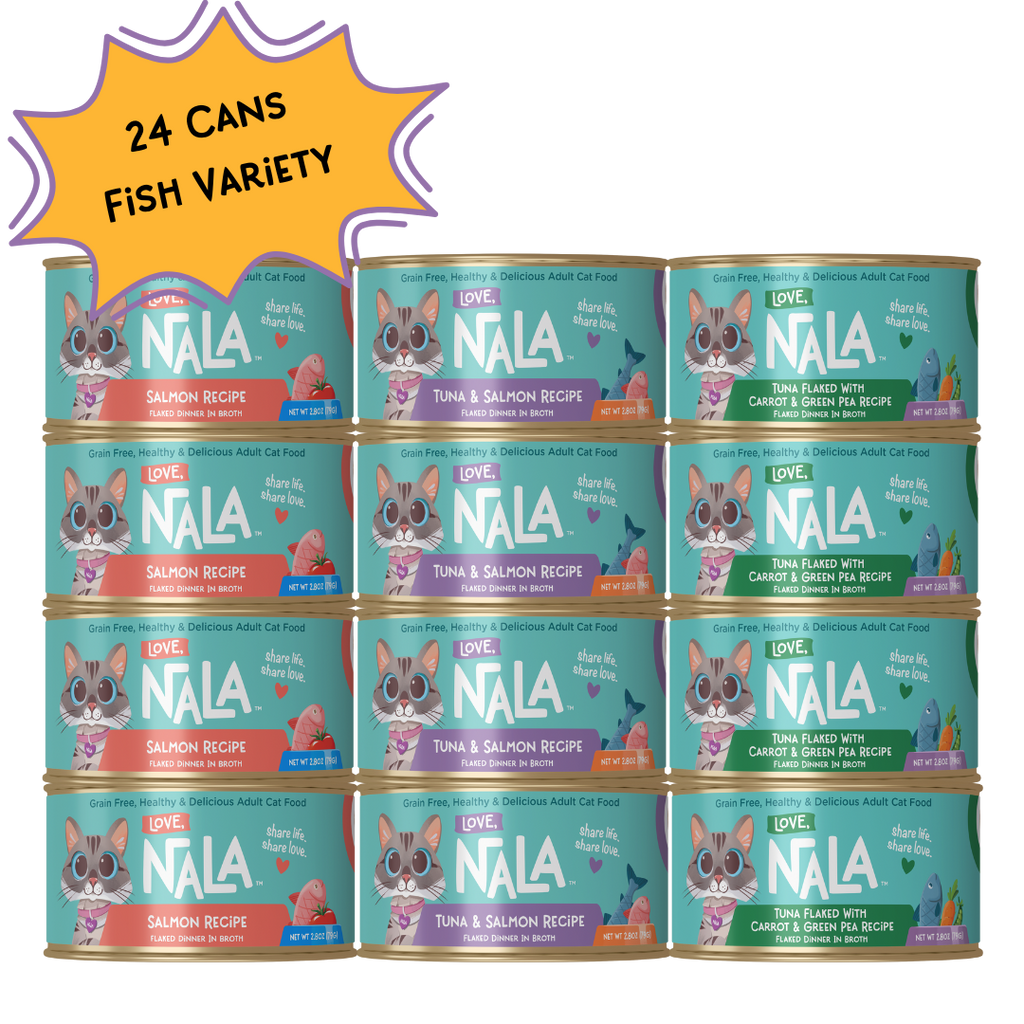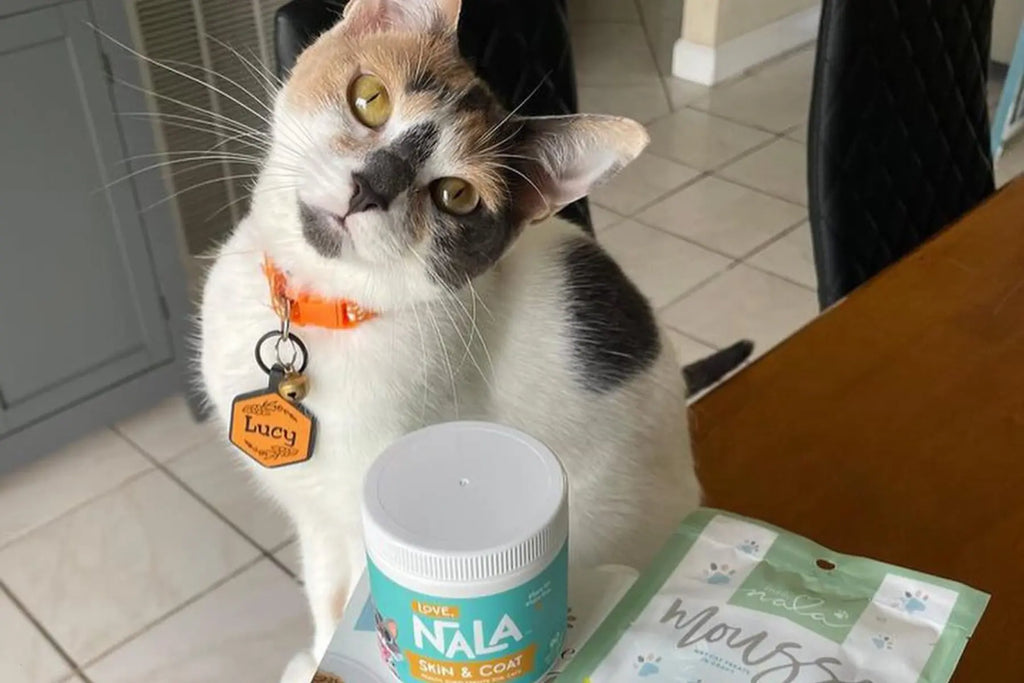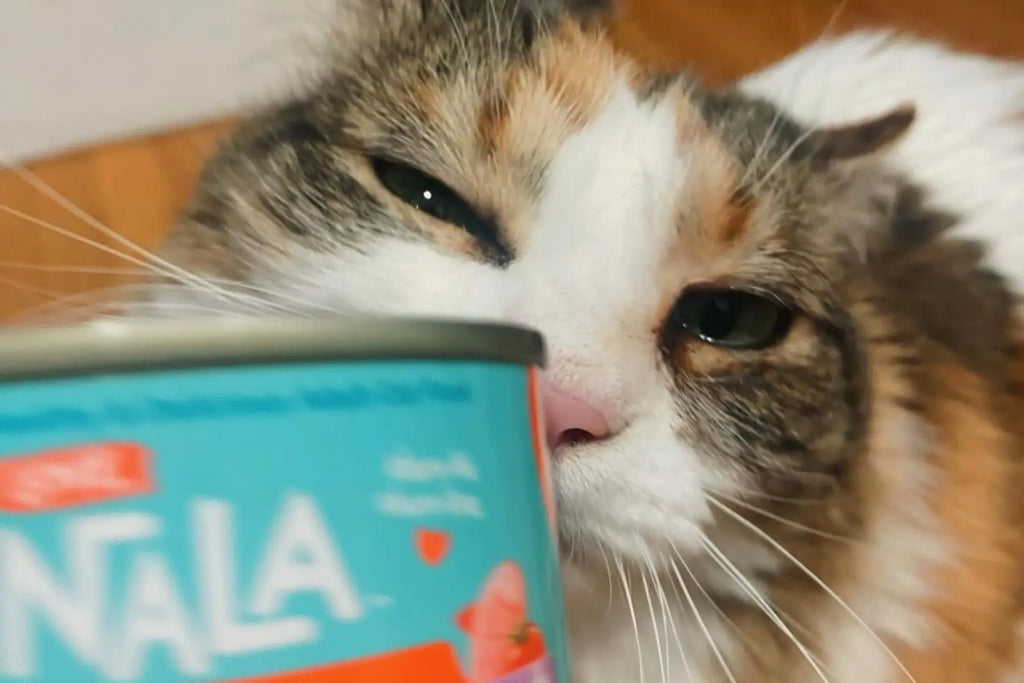When it comes to the health and well-being of our feline friends, understanding the role of cat vitamins and supplements in their diet is crucial. Cats require a range of vitamins for optimal health, each playing a unique role in their bodily functions. These vitamins help maintain their energy levels, supporting their immune system, and ensuring the proper functioning of their organs. Unlike humans, cats are unable to produce certain essential vitamins naturally, making it imperative for these nutrients to be adequately provided in their diet. Ensuring your cat receives the right amount and types of vitamins is key to preventing nutritional deficiencies and promoting a long, healthy life.
Essential Vitamins for Cat Health
Key Vitamins and Their Benefits for Cats
Cats require a variety of vitamins for their health and vitality. Vitamins A, D, E, and K, along with B-complex vitamins, play critical roles in their diet. Vitamin A is essential for vision and immune function, while Vitamin D regulates calcium and phosphorus levels, crucial for bone health. Vitamin E acts as an antioxidant, and Vitamin K is vital for blood clotting. The B-complex vitamins, including B1 (Thiamine), B2 (Riboflavin), B3 (Niacin), B6, and B12, are important for metabolic activities, maintaining healthy skin and muscle tone, and enhancing immune and nervous system functions. These best vitamins for cats ensure a well-rounded nutritional profile for feline health.
Vitamin Deficiencies and Their Impact on Feline Health
Vitamin deficiencies in cats can lead to various health issues. Lack of Vitamin A can cause vision problems and a weaker immune system. Insufficient Vitamin D might result in bone disorders, while a deficiency in Vitamin E can lead to reproductive issues and muscle degeneration. B-vitamin deficiencies can cause anemia and skin problems. It's crucial to monitor these vitamins in a cat’s diet to prevent such health complications.
Natural Sources of Essential Vitamins in Cat Food
While commercial cat foods are formulated to meet most nutritional requirements, understanding the natural sources of these vitamins can be beneficial, especially for those looking to provide a more varied or natural diet for their pets. Here are some natural sources of essential vitamins in a cat's diet:
- Liver and Fish: These are excellent sources of Vitamins A and D. Vitamin A is crucial for cats' vision, skin health, and immune function, while Vitamin D plays a significant role in bone health and metabolism. The liver, in particular, is very rich in Vitamin A, so it should be given in moderation to avoid vitamin A toxicity.
- Eggs and Dairy Products: These provide a good source of Vitamin B-complex. B vitamins are vital for maintaining healthy skin and coat, proper nerve function, and energy metabolism in cats. Eggs and dairy products like cheese can be a nutritious addition to a cat's diet, though it's important to note that some cats may be lactose intolerant.
- Meat and Poultry: These are primary sources of B vitamins and Vitamin E. B vitamins are essential for various metabolic activities, while Vitamin E is an important antioxidant that helps protect cells from damage. Meat and poultry, being the staple of a cat's diet, provide these vitamins naturally.
- Leafy Greens: Although cats are obligate carnivores, they can still derive benefits from small amounts of vegetables in their diet. Leafy greens like spinach or kale can be a source of Vitamin K, which is important for blood clotting and bone health. However, these should be given in moderation as part of a balanced diet.
Incorporating these natural sources of vitamins into a cat's diet can help ensure they receive a range of nutrients necessary for their health. It's important to remember that cats have specific nutritional needs, and their diet should be predominantly meat-based.
Understanding Cat Diet Basics
Components of a Complete Cat Diet
A complete cat diet must contain all essential nutrients to support a cat’s health. This includes high-quality proteins, which are the cornerstone of a feline diet, providing the amino acids necessary for muscle growth and repair. Fats are another critical component, offering energy and aiding in the absorption of fat-soluble vitamins. Vitamins and minerals must be balanced to support various bodily functions, from bone health to nerve conduction. Lastly, although cats have a limited ability to digest carbohydrates, a small amount can be included in their diet for energy, provided it doesn't displace more critical nutrients.
The Role of Water in Feline Nutrition
Water plays a vital role in feline nutrition. Cats are known for their low thirst drive, which makes them susceptible to dehydration, particularly if they eat dry food predominantly. Ensuring constant access to fresh, clean water is essential. Wet food can also contribute significantly to their water intake, which is why it can be a valuable component of their diet. Adequate hydration supports kidney function, digestion, and overall health in cats.
Age and Lifestyle Considerations in Feeding
When planning a cat's diet, it's important to consider their age, lifestyle, and any health concerns. Kittens require diets rich in proteins and calories to support rapid growth, while adult cats need balanced nutrition to maintain health. Senior cats may require diets with more easily digestible proteins and fewer calories if they are less active. Cats with specific health issues might need specialized diets. For instance, cats prone to urinary tract issues may benefit from diets that promote a healthy pH balance and hydration.
The Raw Food Diet for Cats
Benefits of a Raw Food Diet in Cats
A raw food diet for cats, consisting mainly of uncooked meat, bones, and organs, is becoming increasingly popular among pet owners. This diet is seen as a way to provide cats with a more natural and species-appropriate diet, similar to what their ancestors might have eaten in the wild. Advocates of the raw food diet cite several health benefits associated with this feeding approach. Here are some of the key benefits:
- Enhanced Nutritional Value: A raw diet can provide cats with unprocessed and natural nutrients. The cooking and processing of commercial pet foods often degrade some nutrients, particularly certain vitamins and enzymes. A raw diet aims to preserve these nutrients in their natural state, potentially offering a more nutrient-rich option for cats.
- Improved Digestive Health: Many cats digest raw foods more easily than cooked or processed foods. This can lead to better gut health and fewer digestive issues. The natural enzymes present in raw food can aid digestion, and the higher moisture content of raw diets can be beneficial for hydration and urinary health.
- Healthier Skin and Coat: A raw diet often results in a shinier coat and healthier skin in cats. The natural fats and oils present in raw meat are essential for skin health and can contribute to a glossier coat. These fats are often more readily available in raw diets than in cooked or processed foods.
- Dental Benefits: Feeding raw meat, especially when it includes bones, can help reduce tartar and plaque buildup on a cat's teeth. Chewing on raw bones and meat provides a natural way to clean teeth and strengthen jaw muscles, which can be beneficial for dental health.
- Weight Management: Raw diets can help maintain a healthy weight in cats. They are typically lower in carbohydrates than many commercial cat foods, which can be advantageous since cats are obligate carnivores with a limited ability to process carbohydrates efficiently. A diet high in protein and low in carbs aligns more closely with their natural dietary needs.
While the raw food diet for cats can offer these benefits, it's important to approach this feeding method with caution. With proper management and oversight, a raw diet can be a healthy and satisfying option for many cats.
Risks and Considerations in Raw Feeding
While there are benefits to a raw food diet, there are also significant risks and considerations. The potential for bacterial contamination, such as salmonella and E. coli, is a major concern. Additionally, preparing a nutritionally complete and balanced raw diet requires careful planning and knowledge. If not properly formulated, a raw diet can lead to nutritional deficiencies or imbalances.
Balanced Raw Diet for Your Cat
Developing a balanced raw diet for your cat involves understanding their nutritional needs and including a variety of meats, organs, and bones. It's often recommended to consult with a veterinarian or a feline nutritionist to ensure the diet is nutritionally complete. Variety is key in preventing deficiencies and providing a broad spectrum of nutrients.
On the other hand, safe handling and preparation of raw cat food are crucial to minimize the risk of bacterial contamination. This includes storing raw food at safe temperatures, using clean utensils and surfaces for preparation, and avoiding cross-contamination with other foods. Proper hygiene practices are essential in maintaining the health and safety of both the cat and the household.
Diet Cat Food and Weight Management
Recognizing the need for diet cat food is an essential step in maintaining your cat’s health. Overweight and obesity can lead to several health issues in cats, including diabetes, heart disease, and joint problems. Signs that your cat may require a diet change include visible excess weight, lack of grooming, reduced mobility, and difficulty in performing routine activities.
Selecting Diet Foods for Optimal Cat Health
When selecting diet foods for cats, it's important to focus on products that offer balanced nutrition while being lower in calories. The best diet for cats that need to manage their weight typically includes high-quality protein sources, essential vitamins and minerals, and limited carbohydrates. Look for diet cat foods that are specifically formulated for weight control and have a good balance of nutrients.
Incorporating Diet Foods into Your Cat's Eating Plan
Successfully incorporating diet foods into your cat's eating plan requires a gradual approach. Sudden changes in diet can cause digestive upset and may even lead to food rejection. Start by mixing a small amount of the diet food with your cat’s current food, gradually increasing the proportion over a week or so. This gradual introduction helps your cat adjust to the new taste and texture. Additionally, consider portion control and regular feeding times to manage calorie intake effectively. Continuous monitoring and adjusting of your cat’s diet are crucial in effective weight management. Regular weigh-ins and body condition assessments can help track progress. It’s important to adjust the amount of food as needed based on your cat’s response to the diet.
Choosing Nutritious Cat Food
Reading and Understanding Cat Food Labels
These labels provide vital information about the ingredients, nutritional content, and suitability for different life stages. Key elements to look for include a statement of nutritional adequacy, a list of ingredients, and the guaranteed analysis which shows the minimum percentages of protein and fat, and maximum percentages of fiber and moisture.
The Role of High-Quality Ingredients in Cat Nutrition
Quality ingredients ensure that your cat is getting the essential nutrients it needs for optimal health. Proteins should come from real meat sources, fats should be healthy and balanced, and carbohydrates, though needed in smaller amounts, should be easily digestible. High-quality ingredients also mean fewer artificial additives and preservatives, reducing the risk of allergies and health complications.
Specialized Diets: Organic, Grain-Free, and Others
Specialized diets, like organic, grain-free, or prescription formulas, cater to specific health needs or dietary preferences. Organic cat foods are made with ingredients that are free from pesticides, synthetic fertilizers, and other additives. Grain-free diets are often chosen for cats with allergies or sensitivities to grains. However, it's crucial to ensure that the diet is still nutritionally complete and balanced.
Supplements and Vitamins in Cat Diets
When to Use Cat Vitamin Supplements
Supplements are generally recommended when a cat’s regular diet doesn’t meet all their nutritional needs, which can occur in cases of homemade diets, certain health conditions, or dietary restrictions. However, it’s important to consult with a veterinarian before starting any supplements, as over-supplementation can be just as harmful as a deficiency. A professional can advise on the right type and amount of supplement based on the cat’s specific health needs and diet.
Choosing the Right Supplements for Your Cat
Supplements come in various forms, including multivitamins, probiotics, omega fatty acids, and joint support formulas. Each serves different purposes, from boosting overall health to addressing specific issues like digestive problems or joint pain. Always opt for high-quality supplements that are formulated specifically for cats, and avoid those with unnecessary additives or fillers.
Integrating Supplements into Your Cat’s Diet Safely
Start with the recommended dosage and observe your cat for any adverse reactions. Mixing supplements with food is often the easiest way to administer them, ensuring that they are consumed fully. Keep a consistent schedule and monitor your cat’s response over time. Adjustments may be necessary, but always under veterinary guidance.
Monitoring the Effectiveness of Dietary Supplements
This involves watching for changes in energy levels, coat quality, digestion, and overall demeanor. Regular veterinary checkups can help assess the impact of supplements on your cat’s health through physical exams and, if necessary, blood tests. It’s important to remember that while supplements can benefit health, they are not a substitute for a balanced diet and proper veterinary care.
Long-term feline health and nutrition planning involve being proactive and attentive to your cat's changing needs. As they age or their health conditions evolve, their dietary requirements might change. Staying informed about advancements in feline nutrition and being open to adjusting your approach as needed is crucial. Incorporating regular health check-ups, being mindful of weight management, and observing your cat’s behavior and physical condition can provide early indicators of nutritional needs or health issues. Ultimately, the goal is to create a nourishing environment that supports your cat’s health, happiness, and longevity.




















